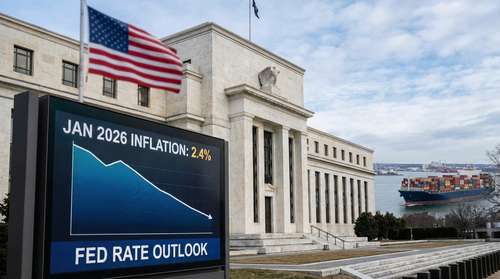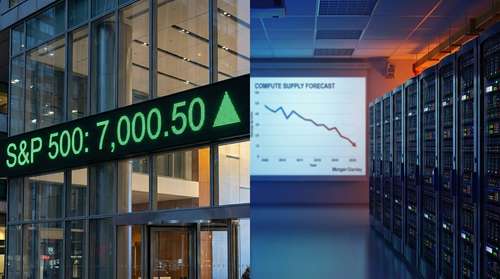Oil Prices Surge as Stocks Plummet Amid Middle East Tensions
The recent escalation in Middle East tensions has sent shockwaves through global financial markets, and if you’ve been following the news, you know it’s been a rollercoaster ride. When Israel struck Iran, the immediate consequence wasn’t limited to headlines—it deeply affected both oil prices and the stock market. Suddenly, traders and investors woke up to a world where crude oil is taking center stage and stock exchanges are trembling in uncertainty. At times, it feels like the events in the Middle East echo directly in the world of international trade and commodity trading.
Investors around the globe are bracing for what might come next. It’s not every day that geopolitical tensions trigger such an economic ripple effect, but here we are, watching oil prices surge and stock values plummet almost simultaneously. As we sit back and try to make sense of this market volatility, it becomes clear that the current scenario is a reminder of just how interconnected our world really is.
Market Reactions to Tensions
In recent days, the global stock market has experienced a significant shock, and it’s no surprise that investors are feeling uneasy. A few moments of tension in the Middle East have led to steep fluctuations in both the commodity and equity markets, emphasizing the large-scale economic impact of regional conflicts. Do you ever wonder how quickly events in one part of the world can transform the environment of financial markets?
The surge in oil prices wasn’t a slow burn—it was a rapid spike that made headlines overnight. With crude oil hitting new highs, experts in the energy sector are alerting investors to the potential for further surges if the conflict continues unabated. Meanwhile, stock prices have plummeted as market participants rush to hedge their investments, employing risk management techniques to mitigate potential losses. The steep drop in major indexes is a testament to the fragile balance of confidence in the stock market.
At its heart, this situation is a classic example of how swiftly market psychology can change under stress. When oil prices surge, it sparks concerns about inflation and international trade disruptions, making the rest of the financial markets feel the strain. This is not just a random market fluctuation—it's a vivid demonstration of how geopolitical tensions spur an immediate economic impact, shaping investment strategies across the board.
Many traders are now watching the interplay between the rising energy sector and the dwindling stock exchange numbers. Some even compare this scenario to a double-edged sword, where the same tension that pushes oil prices higher simultaneously drives investors away from the stock market. It truly is a perplexing situation that requires us to rethink traditional financial risk management approaches.
Implications for the Global Economy
The implications of these rapid changes extend far beyond the trading floors and commodity markets. When oil prices continue to surge while stocks spike downward, the ripple effects can be felt in every corner of the global economy. The escalation in Middle East tensions has not only disturbed the market equilibrium but also raised serious concerns about economic uncertainty and the future of international trade.
For instance, higher oil prices directly impact transportation costs, manufacturing expenses, and even household energy bills around the world. This kind of shift can slow down economic growth, as businesses try to cope with increased operational costs, which in turn influences the broader stock market performance. It’s like a domino effect—one shaky piece influences the next.
We must also consider how these changes could affect economic policies. Central banks and government officials might be forced into making difficult decisions about interest rates and spending priorities, as they balance the need to maintain economic stability with the pressures of geopolitical risks. Over time, such tensions can alter the long-term investment landscape, forcing companies to rethink where and how they allocate their funds.
There’s no doubt that the current situation in the energy sector is intertwined with the strategic decisions being made in financial markets. With crude oil suddenly in the spotlight, entities involved in commodity trading are carefully watching every development. Market volatility is not just a buzzword here—it’s an everyday reality that influences international trade and risk management strategies globally.
Future Outlook and Risk Management
Looking ahead, one of the best strategies for investors right now is to stay informed and agile. The blend of geopolitical tensions and market fluctuations is a stark reminder that nothing in the stock market is immune to global events. It seemingly feels like we’re living on a financial tightrope where each decision must be taken with extreme caution. How do we navigate such unpredictable waters?
Many seasoned investors recommend diversifying your portfolio as a hedge against unexpected price surges and plummets. By mixing assets from different sectors, especially when oil prices and the stock market seem to be inversely related, one can mitigate the economic impact on your investments. While some investors are increasing their exposure to the energy sector, others are seeking safe havens in bonds and alternative assets to balance risk. This phase of uncertainty has underscored the need for robust risk management strategies, something that financial advisors have been talking about for years.
Additionally, an active approach in monitoring market signals is key. By keeping a close eye on commodity trading trends and the evolving dynamics of international trade, investors stand a better chance of staying one step ahead. It’s almost as if every headline is a clue to the next phase of the market puzzle. Financial experts are urging everyone to assess their investment strategies and prepare for potential volatility, because while the current surge in oil prices and the plunge of the stock market might be temporary, the long-term implications could be profound.
It’s also essential to consider the human element behind these statistics. The anxiety felt by stock traders and the cautious optimism of energy sector analysts both contribute to an overall atmosphere of economic uncertainty. This interplay of fear and hope is a reminder that markets are not just numbers on a screen—they represent real-world decisions, personal investments, and, ultimately, our shared future in a complex global economy.
As we move forward in this unpredictable landscape, it’s clear that risk management is more than just a buzzword—it’s a vital part of every investor’s strategy. Whether you are a casual observer or an experienced trader, understanding the factors that drive this volatility is not just advisable, it’s essential!
In conclusion, the escalated tensions in the Middle East have clearly triggered a cascade of market reactions, with oil prices surging and stocks plummeting in a vivid display of market volatility. The tight interplay between geopolitical events and economic indicators has reshaped the outlook for investors around the world. As we continue to follow these developments, keeping a close eye on emerging trends and maintaining a diverse investment strategy will be paramount in navigating these stormy financial waters.




